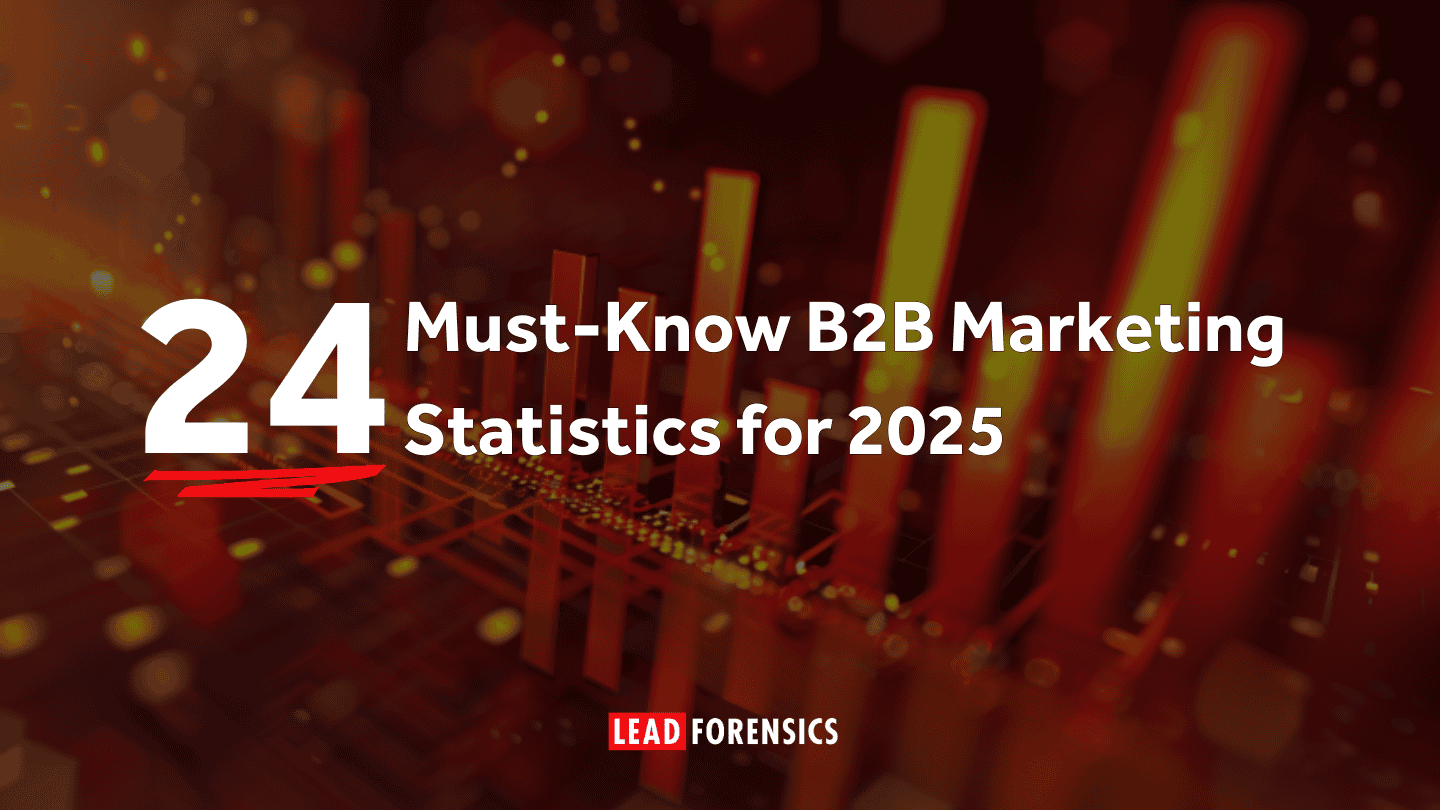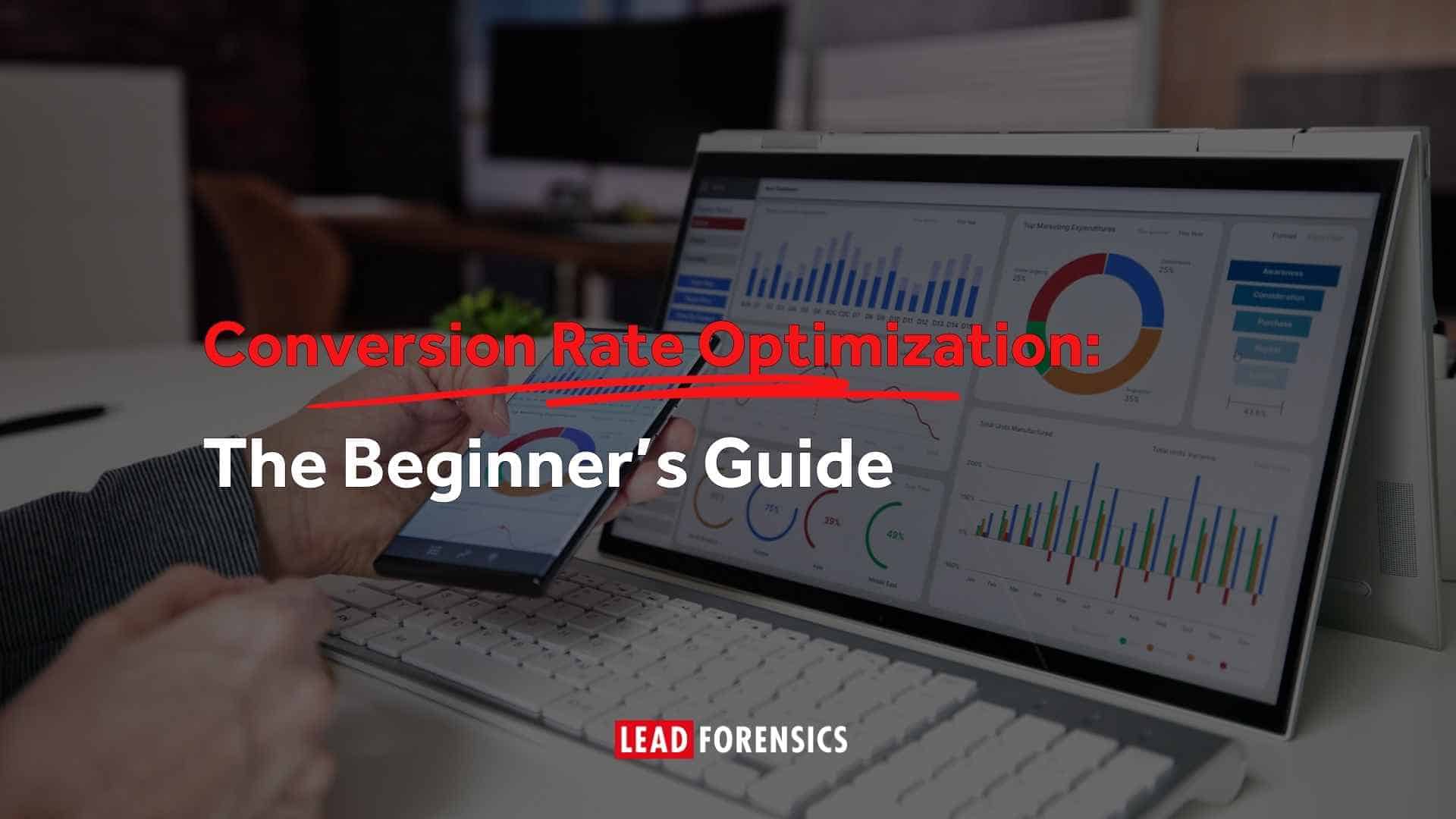But where do you even begin?
With so many marketing channels and strategies vying for your attention, it can be overwhelming to determine which tactics will deliver the most significant results. This is where data becomes your secret weapon.
In this blog post, we’ll equip you with 24 essential B2B marketing statistics you need to know for 2025.
Content is King
Content marketing remains a cornerstone of any successful B2B marketing strategy. Here are some key statistics highlighting its continued importance and evolution:

1. Content Drives Awareness: A whopping 83% of B2B content focuses on building brand awareness and interest. This underlines the power of content marketing in establishing your brand as a thought leader in your industry.
2. Length Matters for SEO: Aim for long-form content! On average, content ranking on Google’s first page boasts a word count of around 1447 words. This suggests in-depth content is valuable for search engine optimization, allowing you to comprehensively address your audience’s pain points and establish yourself as a trusted resource.
3. Outsource for Efficiency: Don’t have the bandwidth to create high-quality content in-house? 84% of businesses outsource content creation, making it a viable option to secure content that resonates with your target audience.
4. The Rise of Video: Video marketing is gaining momentum, with 87% of B2B marketers planning to invest in it for 2025. As users spend more time on pages with videos, this format is becoming increasingly crucial for B2B marketing. Integrate video content into your strategy to enhance engagement and knowledge retention.
5. Content Delivers Results: The numbers speak for themselves: 83% of B2B marketers achieved brand awareness goals through content marketing, while 77% built trust and credibility. Content marketing is demonstrably effective in achieving marketing objectives, making it a worthwhile investment.
The Power of Data and Targeting:
B2B buyers today expect a personalized experience throughout their buying journey. Here are some statistics highlighting the importance of data-driven targeting:

6. AI is on the Rise: With the increasing adoption of artificial intelligence (AI), 47% of marketers plan to leverage it more in their marketing efforts. AI can be used for tasks like audience segmentation, content personalization, and campaign optimization.
7. Personalization Pays Off: Account-based marketing (ABM), which focuses on personalized campaigns for specific accounts, is a top strategy for 41% of B2B companies. By tailoring your messaging and content to the specific needs and challenges of high-value accounts, you can increase engagement and conversion rates.
Email Marketing Endures:
Despite the rise of new marketing channels, email remains a powerful tool for B2B marketers. Here’s a statistic that underscores its continued relevance:

8. Email Still Reigns Supreme: Despite the rise of new marketing channels, email remains a dominant force. 50% of marketers believe email is the most effective marketing tool in terms of ROI.
The Rise of Mobile and Social Media:
The way B2B buyers consume information is constantly evolving. Here are some key statistics highlighting the importance of mobile optimization and social media engagement:

9. Mobile Takes Center Stage: In 2023, mobile accounted for nearly 48% of B2B ad spending, and this figure is expected to surpass 50% by then end of 2025. Ensure your marketing strategy is mobile-friendly. Responsive website design and a focus on mobile-optimized content are essential for capturing your audience’s attention.
10. Social Media – A Goldmine for Info: 84% of B2B buyers utilize social media as a key source of information during the purchase decision process. Social media can be a valuable platform for showcasing your expertise, establishing trust with potential customers, and fostering meaningful connections. Regularly share valuable content, engage in industry conversations, and participate in relevant social media groups to build brand awareness and thought leadership.
11. LinkedIn Leads the Pack: LinkedIn remains the most popular platform for B2B professionals, with 4 out of 5 leads from social media coming through this channel. Don’t underestimate the power of a strong LinkedIn presence. Optimize your company profile, publish engaging content, and actively connect with potential customers and industry influencers.
12. Social Media Ads Drive Results: 65% of B2B organizations have acquired clients through LinkedIn ads. Consider incorporating paid social media advertising into your strategy. Utilize targeted advertising options to reach your ideal audience and generate high-quality leads.
SEO is Crucial:
Search Engine Optimization (SEO) is fundamental to ensuring your website ranks highly in search results for relevant keywords. Here are some statistics highlighting the importance of SEO for B2B marketing:

13. Buyers Conduct Extensive Research: The average B2B buyer conducts a staggering 12 online searches before interacting with a B2B website. This highlights the importance of SEO in driving qualified traffic to your website. By implementing effective SEO strategies, you can increase your website’s visibility and attract potential customers actively searching for the solutions you offer.
14. Cross-Channel Engagement is Key: Nearly 74% of B2B customers research products online before making an offline purchase. Employ a cross-channel marketing strategy to engage with customers throughout their buying journey. Coordinate your SEO efforts with other marketing channels like social media and email marketing to create a seamless and impactful brand experience.
15. SEO Drives Conversions: Search engines offer businesses an average close rate of 14.6%, significantly higher than traditional methods (1.7%). Prioritize SEO to improve your conversion rates. Optimize your website content with relevant keywords, focus on technical SEO aspects, and build high-quality backlinks to your website to improve organic search ranking and generate qualified leads.
16. Content and SEO Go Hand-in-Hand: A solid 60% of B2B organizations use SEO to generate leads. By creating high-quality, SEO-optimized content that addresses your target audience’s pain points and incorporates relevant keywords, you can attract organic traffic and establish yourself as a thought leader in your industry.
Budgeting and Success Measurement:
Effective B2B marketing requires strategic allocation of resources. Here are some statistics to consider when planning your budget:

17. Budget Varies by Company Size: The average content marketing budget for organizations with 1000+ employees is $405,000, compared to $81,500 for those with 1-99 employees. Tailor your content marketing spend based on your company size and resources. While larger companies may allocate a larger budget for content creation, smaller companies can still achieve success by focusing on creating high-quality, targeted content.
18. Account-Based Marketing (ABM): 46% of B2B companies plan to invest in ABM. While ABM can be a highly effective strategy, it often requires a significant investment in research, personalization, and targeted outreach. Carefully consider your budget and resources when determining if ABM is the right fit for your marketing strategy.
19. Focus on ROI: Marketers are increasingly focused on demonstrating the return on investment (ROI) of their marketing efforts. 70% of B2B marketers report facing pressure to demonstrate marketing ROI. This highlights the growing need for marketers to quantify the impact of their efforts and justify marketing spend.
The B2B Buyer Journey:
Crafting a B2B marketing strategy that resonates with your target audience requires a deep understanding of their buying journey. Here are 5 key statistics that shed light on the different stages B2B buyers navigate before making a purchase decision:

20. The Power of Personalization in the B2B Buyer Journey: Personalization is key to truly resonate with your target audience. 80% of business buyers are more likely to buy from a company that provides personalized experiences. By personalizing your marketing messages and content based on the buyer’s specific needs, interests, and stage in the journey, you can dramatically increase engagement and conversion rates.
21. Multiple Decision-Makers Involved: B2B buying decisions are rarely made by a single individual. Typically, several decision-makers within an organization are involved in the evaluation process. According to WBR Research, a typical firm with 100-500 employees has an average of seven people involved in most buying decisions. Your marketing strategy should cater to this dynamic, aiming to address the needs and concerns of all stakeholders involved.
22. Prioritizing Value and ROI: B2B buyers are increasingly focused on value and return on investment (ROI) when making purchasing decisions. Nine out of ten B2B buyers say online content has a moderate to major effect on purchasing decisions, and 67% of the buyer’s journey is now done digitally. This highlights the importance of your marketing efforts clearly communicating how your product or service helps solve their specific pain points and delivers measurable value to their organization.
23. Building Trust is Essential: Trust is a critical factor in B2B purchasing decisions. B2B buyers are more likely to do business with companies they perceive as trustworthy and reliable. 57% – 70% of B2B buyers are already 57% through their buying research before contacting sales, emphasizing the need to build trust early on. You can achieve this through transparent communication, high-quality content, strong customer testimonials, and a commitment to excellent customer service.
24. The Rise of Social Proof: Social proof, such as customer reviews, case studies, and industry recognition, plays a significant role in influencing B2B buying decisions. Incorporate social proof elements into your marketing strategy to showcase the value you deliver to existing customers and build trust with potential buyers. Studies show that positive online reviews can increase conversion rates by up to 15%, making social proof a powerful tool.
The B2B marketing landscape is a dynamic environment that constantly undergoes change. Staying ahead of the curve requires a data-driven approach that leverages the latest trends and audience insights.
Remember, data is your compass in this ever-changing world. By using the statistics and insights provided here, you can craft a winning B2B marketing strategy that resonates with your target audience, builds brand awareness, generates qualified leads, and ultimately drives business growth.
Don’t be afraid to experiment with different tactics, analyze your results, and continuously refine your approach. Embrace a data-driven mindset, stay informed about emerging trends, and you’ll be well-positioned to achieve B2B marketing success in 2025 and beyond.










